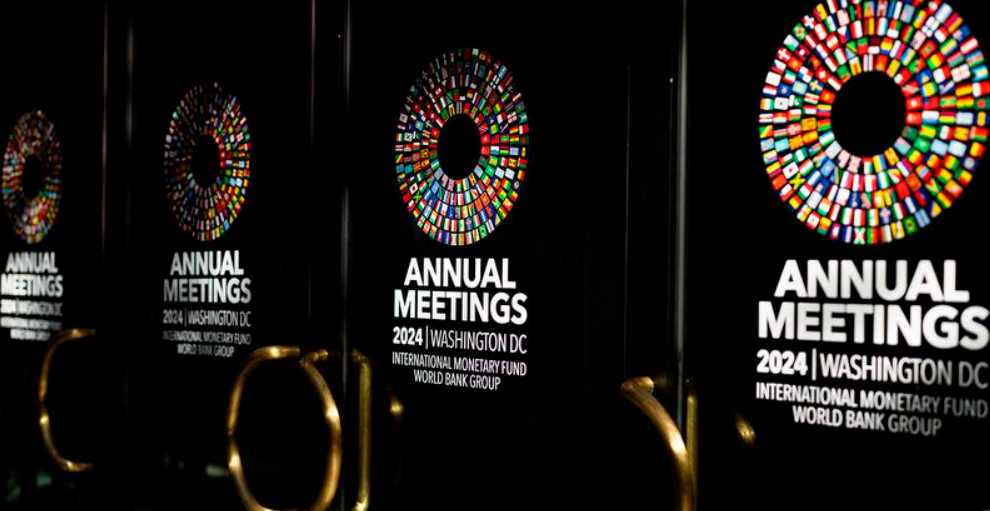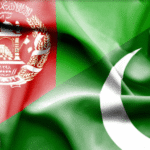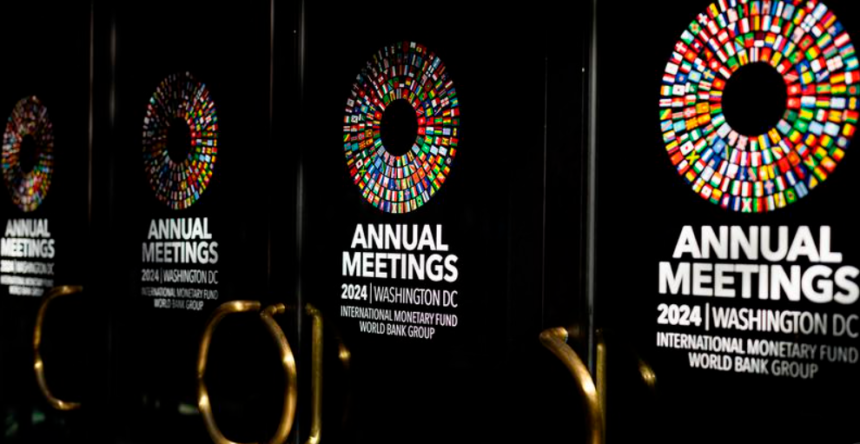As the world grapples with an array of complex challenges, the recent meetings of the International Monetary Fund (IMF) and the World Bank have taken on a heightened sense of urgency. Set against the backdrop of escalating conflicts, economic instability, and growth concerns, these gatherings serve as a crucial platform for policymakers, economists, and global leaders to address pressing issues and chart a path forward. This article explores the significant themes that emerged from the discussions, highlighting the interconnectedness of geopolitical tensions, economic growth, and the role of international financial institutions in promoting stability and development.
A Turbulent Global Landscape
In recent years, the global landscape has been marked by an alarming increase in geopolitical tensions and conflicts. From the ongoing war in Ukraine to rising hostilities in the Middle East, these conflicts have not only caused immense human suffering but have also had profound implications for the global economy. As nations confront these challenges, the IMF and World Bank meetings serve as a vital forum to address the economic ramifications of such turmoil.
The Ukraine Conflict
The war in Ukraine continues to be a focal point of international concern, with far-reaching consequences for global energy markets, food security, and inflation. As countries impose sanctions on Russia and seek alternative energy sources, the disruption of supply chains has led to increased prices and heightened volatility in global markets.
At the IMF and World Bank meetings, leaders discussed the need for coordinated responses to mitigate the economic fallout from the conflict. With many developing nations facing severe challenges in accessing food and energy, the urgency for international collaboration has never been greater. The IMF’s financial support and the World Bank’s development initiatives will be crucial in helping these countries navigate the current crisis.
Middle Eastern Conflicts
In addition to the war in Ukraine, ongoing conflicts in the Middle East, including tensions involving Israel and Palestine, have further complicated the global economic landscape. These conflicts not only result in humanitarian crises but also disrupt trade and investment flows, exacerbating economic instability in the region. 
During the meetings, discussions centered on the need for diplomatic efforts to resolve these conflicts and promote sustainable development. The World Bank emphasized the importance of investing in infrastructure and social programs to foster resilience and stability in conflict-affected areas. By addressing the root causes of conflict, the international community can work towards a more peaceful and prosperous future.
Growth Concerns and Economic Recovery
As the world emerges from the shadows of the COVID-19 pandemic, growth concerns loom large. Many economies are struggling to recover from the unprecedented disruptions caused by the pandemic, and the current geopolitical tensions only add to the uncertainty. The IMF’s World Economic Outlook highlights the need for robust policies to support growth and stability.
Inflationary Pressures
One of the most pressing issues facing economies worldwide is the rise in inflation. Supply chain disruptions, coupled with soaring energy prices, have led to increased costs for consumers and businesses alike. Central banks are grappling with the challenge of balancing inflation control with the need to support economic growth.
During the meetings, central bank governors and finance ministers shared their perspectives on managing inflation and the risks associated with tightening monetary policy. While there is consensus on the need to address inflation, there are differing views on the pace and approach to policy changes. This divergence reflects the complex interplay of domestic economic conditions and global factors.
The Role of Fiscal Policy
In addition to monetary policy, fiscal policy is also critical in addressing growth concerns. Governments must prioritize investments in infrastructure, education, and health to stimulate economic activity and support long-term growth. The World Bank emphasized the importance of creating an enabling environment for private sector investment, which is essential for driving innovation and job creation. 
Climate Change and Sustainable Development
Amid IMF discussions of wars and economic recovery, the imperative to address climate change remains a pressing concern. The impact of climate change on global stability is undeniable, with extreme weather events, rising sea levels, and resource scarcity posing significant threats to economies and societies.
Climate Financing
At the IMF and World Bank meetings, leaders discussed the urgent need for climate financing to support developing countries in their efforts to transition to low-carbon economies. The commitment to climate action is essential for ensuring a sustainable future, and international financial institutions play a crucial role in facilitating access to funding and technical assistance.
The recent pledge to increase climate financing to $100 billion per year is a step in the right direction. However, participants emphasized the need for transparency and accountability in the disbursement of funds to ensure that resources are effectively utilized for climate adaptation and mitigation efforts.
Transitioning to Green Economies
The IMF discussions also highlighted the importance of transitioning to green economies as a means of fostering sustainable growth. Investments in renewable energy, sustainable agriculture, and eco-friendly technologies not only address climate challenges but also create jobs and stimulate economic activity. By aligning economic growth with environmental sustainability, nations can build resilience against future shocks.
Conclusion: A Call for Global Solidarity
As the IMF and World Bank meetings conclude, the call for global solidarity has never been more urgent. The interconnected challenges of wars, economic instability, and climate change require coordinated responses from the international community. Policymakers must work together to address immediate crises while also laying the groundwork for sustainable development and long-term growth.
The role of international financial institutions in facilitating dialogue, providing financial support, and promoting best practices cannot be overstated. By fostering collaboration and sharing knowledge, the IMF and World Bank can help countries navigate the complexities of the modern world.
In a time of uncertainty, it is imperative that nations come together to forge a path toward peace, prosperity, and sustainability. The challenges ahead are formidable, but with collective action and commitment, a brighter future is within reach. ALSO READ:- The Emerging Debt Crisis: How Poor Nations Face a Cash Shortage as Default Wave Peaks





